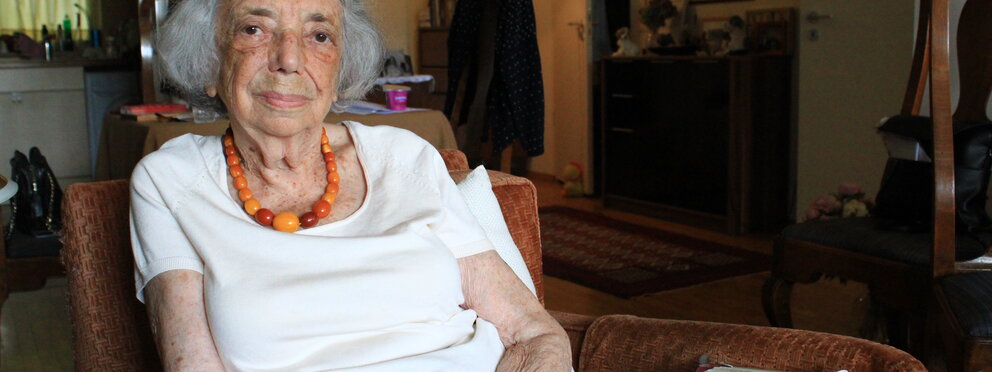
Margot Friedländer
About Margot Friedländer
Margot Friedländer was born in Berlin on 5 November 1921. She spent a happy childhood with her younger brother and her parents, which was only marred by her parents' difficult marriage and divorce. She never experienced much discrimination, but this changed after the pogrom night on 9 November 1938, when she had to abandon her apprenticeship as a seamstress. Margot's father fled abroad alone and Margot and her family realised that they too had to flee. However, several attempts to emigrate were unsuccessful. On 20 January 1943, her mother and brother were deported to Auschwitz. Margot was left alone in Berlin and went into hiding. In June 1944, she was caught by 'Greifern' and sent to the Theresienstadt concentration camp, where she realised that her family had probably not survived. After liberation, she and her husband emigrated to the USA, where they quickly found work and a flat. They led a successful life there and Margot began to write down all her experiences. She has lived in Berlin again since 2010.
"They were the ones [who] didn't look away, who did something that could have cost them their heads and they did it anyway because they were human beings. People who had feelings for other people and recognised other people as people. That's all I preach."
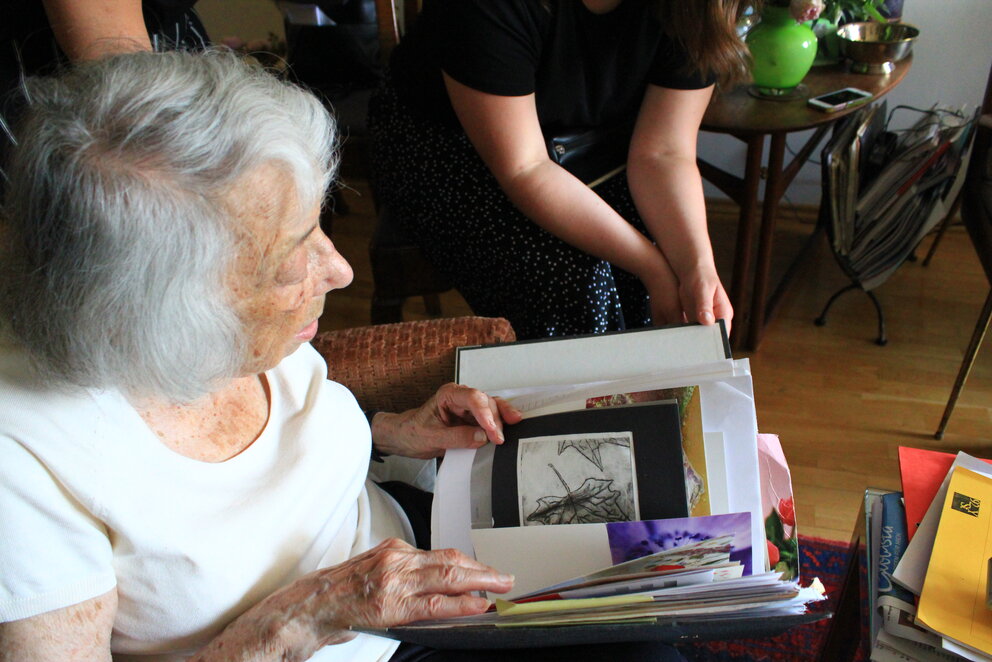
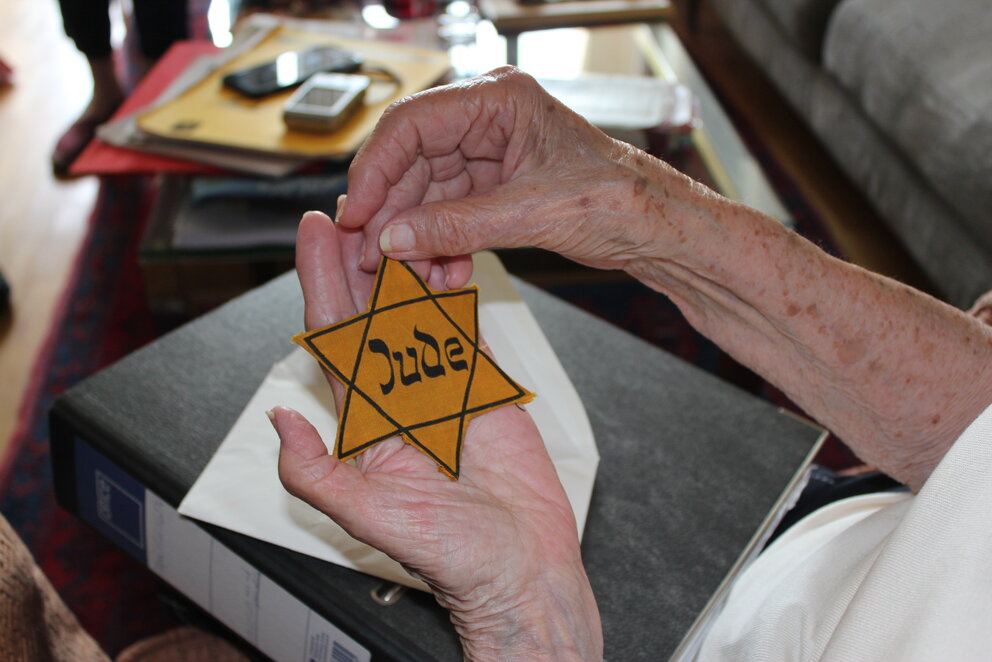
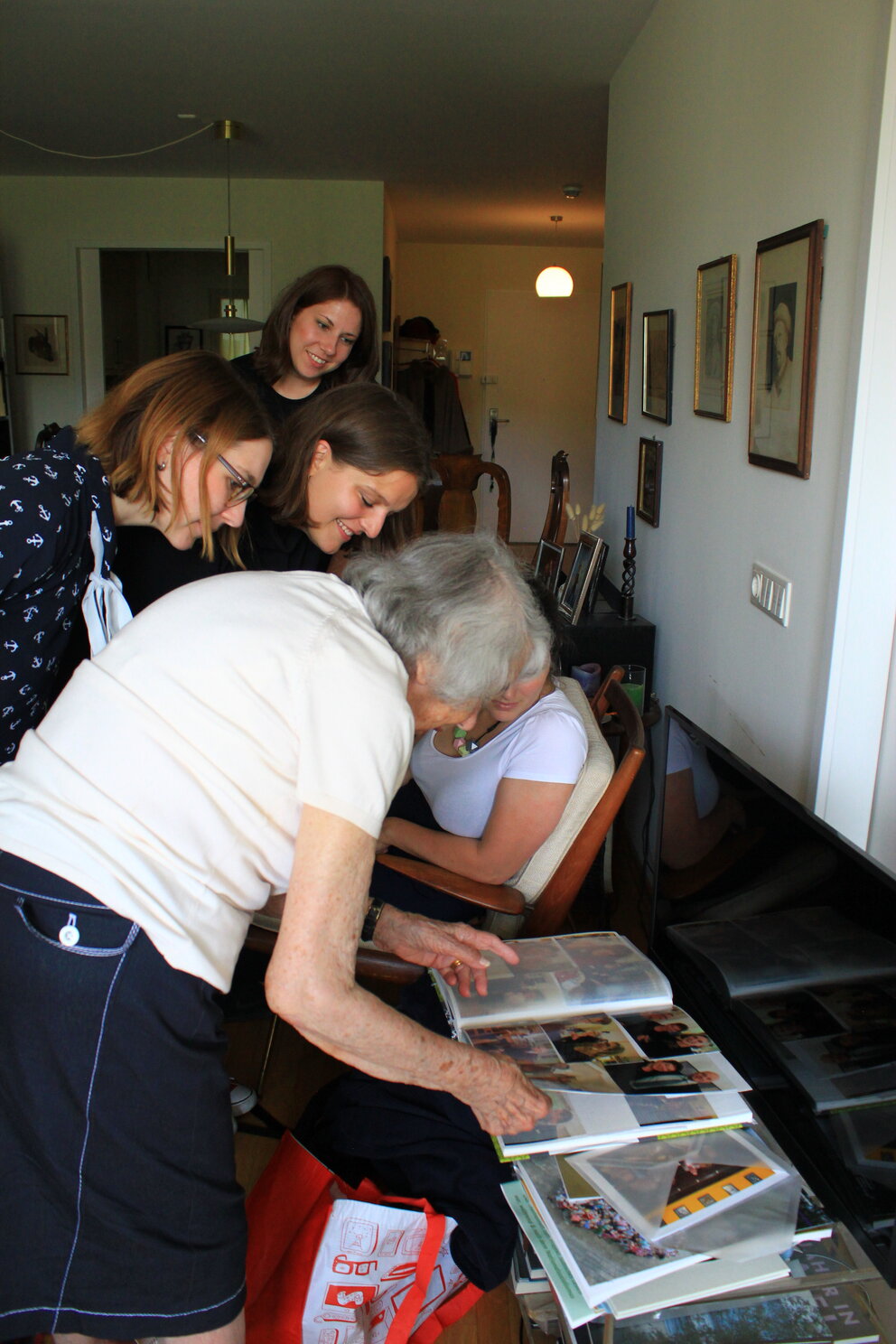
A picture to live on
The amber necklace and the address book are the only things Margot still has from her mother. Publishing her story in the form of a book has helped her to deal with her past and be in harmony with herself.
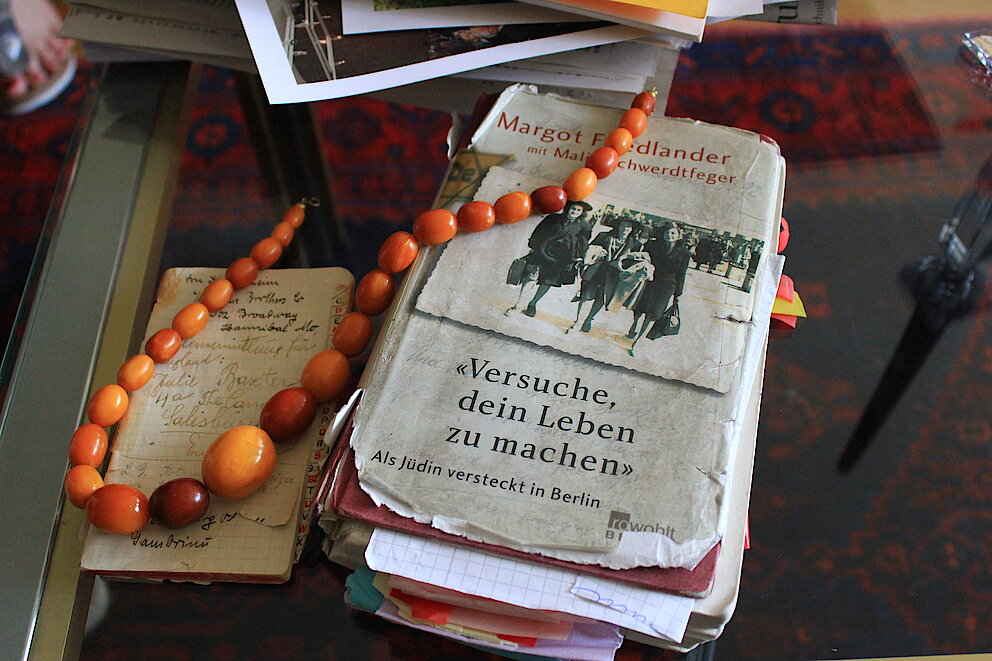
Our encounter
Margot Friedländer tells us the story of her life from her youth in Berlin, when she was already interested in fashion and enjoyed trips to visit relatives at Lake Scharmützelsee, until she was separated from her mother and her beloved brother Ralph. This day also marked her complete disappearance in Berlin, where she lived in various hiding places before being betrayed and deported to Theresienstadt. In Theresienstadt she experienced liberation and married her husband, with whom she emigrated to the USA in 1946 and built a new life.
We are deeply moved when she shows us her mother's notebook, the only thing she has left of her apart from a necklace and her handbag. She wears the necklace all the time. Together we look at photo albums and her workbooks from the USA, where she started writing through creative writing courses after the death of her husband.
She tells her story in powerful sentences, including why she finally gave up her flat in the USA at an advanced age and moved back to Berlin. For her, Berlin is home because people helped her there and hid her. She does not blame today's generation for the crimes of her ancestors. Rather, she believes that we have a responsibility to confront hatred and anti-Semitism because - as she sees it - the social climate in Germany has changed for the worse in recent years. Her appeal to us is therefore that we should simply be human beings and that it doesn't matter where someone comes from or what religion they are.
She also tells us about the films about her life and shows us a copy of her book "Try to make your life", which she always takes with her to readings. You can clearly see from the edition that she has already done a lot of readings. And that's not all: she also continues to visit schools and tell her story there. Margot Friedländer tells us that this is precisely why she returned to Germany after decades in the USA, namely to work to ensure that the Shoah is not repeated.
